
Acupuncture & the Body-Mind Connection: Pain & Indigestion as Psychosomatic Messages
Many physical problems have a mental-emotional component to them. The reverse can also be true. As an acupuncturist I try to see both aspects to a person’s conditions, so we can treat both the root and manifestation of the issue.
It’s not always clear what causes what in a person’s body, mind and life. Pain can come from a mental-emotional imbalance, and likewise many mental-emotional issues can come from a physical or physiological problem. Treating the entirety of a person therefore becomes a more complete, yet complex way to address a condition.
Understanding the “spirit” of the acupuncture channel and points is important if we want to address conditions beyond their physical manifestation. Each acupuncture channel is a cultivation. Each point is an entrance into a state of awareness. They are carriers of wisdom and learning. To utilize an acupuncture channel is to tap into the body’s deep storehouse of collective consciousness, helping a person evolve and grow.
The Small Intestine is the chief assistant to the Heart. Its acupuncture channel is located on the outer arm, traveling into the neck and face, ending at the ear. It travels internally to the eyes and into the small intestine and heart organs. It’s role is chiefly digestive, but also influences immunity and cognition.
The names of the acupuncture points provide insight into not only their physiological function but also to their “spirit” and effect on the mind, emotions and contribution to consciousness.
A patient recently came to me complaining of jaw pain, diagnosed as TMJ by his doctor. He was also having recurrent digestive problems which included constipation and bloating.
The trajectory of the Small Intestine acupuncture channel travels through the jaw, as do several other channels. I diagnosed the Small Intestine as the root of the problem due to the patient’s mental-emotional profile. He said he’d been suffering from feelings of “misery,” along with intermittent anxiety and depression. The cause of these feelings seemed to be due to confusion in his life surrounding behavior and choices. He felt he was addicted to people, places and behaviors that had a “toxic” effect on him. Yet he was unable to let them go. He’d also experience a sense of insecurity socially, feelings as if he needed constant feedback and validation from others to alleviate his anxiety and help him feel animated.
The acupuncture point names on the Small Intestine channel are evocative of the ability to perceive clearly and make choices that support ourselves being “upright.” The term “Zheng,” which is often translated as “upright” refers to a type of immune energy that deflects, deters and dispels pathogenic elements usually related to bacteria, virus, parasites and fungi. However this term was developed by Confucians for whom morality was important.
Morality is acknowledged as relative. Each of us, depending on our nature, as well as the society and culture in which we live, have different values, boundaries and beliefs. The important consideration is: are we living according to our own nature? Are we following our “Heart” and what’s it knows to be right; or in Confucian terms: “upright.” Are we comfortable with what we are doing, how we are living; or does our lifestyle ultimately make us feel ashamed or even sick?
Yet for some us, we lack a clear inner compass. We may rely too much on the input of others, or feel too influenced or affected by criticism. We may end up making choices or living in ways that don’t honor or feed our nature, making us feel dependent or out of synch with life, usually in ways we cannot fully understand or explain.
There can be a codependent element to dysfunction of the Small Intestine. This organ and channel is an assistant to the Heart which houses the spirit (Shen), making sure the desires and commands from the Heart are clear, concise and directed. Other people are meant to inspire us. The Small Intestine physiologically brings this inspiration information into the self to interface with the essence (the Kidneys via the Bladder: which house the Jing-essence and represent the essential self). The light illumination that shines outwards as a result should be bright and clearly unique, emanating our true nature and individual spiritual pathway in the world.
The acupuncture point names of the Heart channel illustrate this process. The point “Spirit Gate” (HT-7) and “Soul Path” (HT-4) suggest that we all have access to our own inner knowing. Innate in us all is communication capacity with our spirit which guides our life. We can be influenced by others, but the truth always lies within us. The Small Intestine is the organ assistant that helps keep the message, and interface between ourselves and the world clear and free of confusion.
When a person comes to me with a condition that needs to be treated, It’s often hard to discern what has caused what. Sometimes it’s not that simple. It may well be that both physical and emotional issues manifest as the same time as different expressions of the same internal imbalance. One needn’t necessarily cause the other. It is an underlying energetic imbalance that may be causing both.
Acupuncture treats the body: the structure and its physiology. But it also treats the soul: the mind and emotions. Energy (Qi) is in all things: the body, mind and soul. Therefore an imbalance in Qi can create symptoms in any area of the body, mind or spirit.
This patient was a relatively easy case in some respects. Complicated in others. For his jaw pain, I palpated the area and needled the tender points, which happened to be located along the Small Intestine channel. We used the names of these points as the jumping off point for discussion into the deeper conflict areas of his life.
Next to the ear is an acupuncture point called “The Palace of Listening” (SI-19). Under the tip of jaw is another point called “Celestial Appearance” (SI-17). Further down the neck is a point called the “Celestial Window.” I needled all of these points along with a point under the cheekbone (SI-18) which has a strong soothing effect on the sinews and opens the sensory portals. I also needled two points on the arms: the “Upright Branch” (SI-7) and SI-4 at the wrist. I added the point “Spirit Gate” (HT-7), as well as some local points on the abdomen to regulate digestion.
I suggested that maybe his body was trying to communicate something to him through the pain in his jaw. As I needled the tender points I told him the acupuncture point names and we talked about what those names might mean.
I told him in Chinese medicine the Small Intestine channel, in addition to being a digestive channel, is seen as highly involved in immunity. I also told him the aspect of digestion in which the Small Intestine was most involved was in the “further separation of the pure from the impure.” This could have moralistic connotations, but it also relates to food and drink which must be separated for nutrition. It also relates to cognition: being able to sift through choices and options to decide what is most appropriate and in-line with one’s “Heart,” and what is extraneous. When the Small Intestine is strong we instinctively know, or can at least deduce what is right and wrong for us without excessively relying on the opinions and advice from others.
I asked about reactions to his world and his choices. Did he feel they really nourished him? Was his life nutritious? And what aspects of his life did he seem to have an “immune response” to? What made him upset, angry, anxious or depressed? How much did he rely on others to decide? How much validation did he require?
This was a spiritual discussion we were having, even if I was treating his jaw pain and digestive upset. I was asking him to contemplate ways in which his lifestyle choices may be contributing to his pain and body dysfunction.
The two points on the neck: SI-17 and SI-16 are called by European acupuncturists “Windows to the Sky” points due to their strong effect on perception and the sensory orifices. This class of acupuncture points is said to give insight to a person when needled.
We can often get caught up in our ego-motivated viewpoints, making choices based on outer influence or superficial desires. Or, many of us simply do what we are told, or what we think is expected of us. We rely totally on the advice and direction of others to make our choices. Yet we may have an internal reaction to these choices that makes us uneasy or even unwell.
Digestive problems can be common psychosomatic reactions to feeling conflicted or uneasy in our social world. The “separation” process can be affected, causing confusion.
My patient was a gay man who said he was always trying to “compete” and “keep up with” his partner who lived a very active, promiscuous “party” life. He was an extrovert with an abundance of energy, whereas my patient was more of an introvert: more sensitive, preferring quiet “one-on-one” encounters to the loud group social scene his partner preferred.
I asked my patient why he went along with such a lifestyle if he knew it didn’t suit him. He said he felt he “should” be able to keep up and enjoy such a life, as it was the “culture.” And he alluded to his partner being the more dominant personality in the relationship and therefore making most of the decisions about their life.
I suggested that maybe his digestive issues were a psychosomatic expression of not being able to fully “digest” his life. And the pain located at the “listening palace” near the ear might be a message from his body that he is not listening to himself.
The “windows to the sky” points on the neck encouraged him to meditate on “sensing” his life and himself in it from a more “spiritual,” distanced point of view. These points allow a person to view themselves and their lives somewhat separated from the emotional entanglements that obscure clear thinking. They may promote dreams that help clarify situations, or simply allow us to observe things in a different way.
The point SI-4 on the wrist is a point that helps calm a crisis in a person’s life: the psychosomatic reaction to something that is challenging or bothering them. SI-7 the “upright branch” clears inflammation from the body which is often due to an immune response to something, be it emotional or physical. It also has a strong effect on calming personality tendencies that can become agitated or rigid. These points ease pain and help the body to release whatever it is holding onto. SI-7 has an especially strong effect on easing anxiety, anger and resentment: mental as well as physical toxins creating inflammation and agitation.
The TMJ pain went away first. After one session. The digestive problems required continual treatment for several months. It required continually harmonizing his digestive organs, ridding the body of excessive dampness (due to lack of assimilation and transformation), and heat inflammation which disturbed his sleep and agitated his mind and emotions. On a spiritual level, we needed to continually return to the topic of his lifestyle and its relationship to his nature. Through the treatment I’d repeatedly give him acupuncture points to help him reflect on his life and perceive his choices in a new, ideally clearer way. He needed help clearing away the influences from others, his ego-focused desires and addictions and his tendency to seek validation from others. When the “heat” and “dampness” had been cleared and the portals of perception opened, he became better able to see himself.
After several months my patient decided he and his partner weren’t a good fit and began the process of re-organizing his life in a way that was closer to his nature, which he was coming slowly to appreciate and honor. It was not an easy process. He had to continually reassess his lifestyle choices, and develop different boundaries with others. He came to utilize his physical symptoms as a barometer for when he’d go off track. When his belly started to bloat he’d realize he wasn’t properly digesting and separating the stimuli in his life. When his jaw and ear started to hurt, he’d know he’d stopped listening to himself. When he began having neck pain again he’d see that he was listening too much to other people and required more time and space to discover what was right for him.

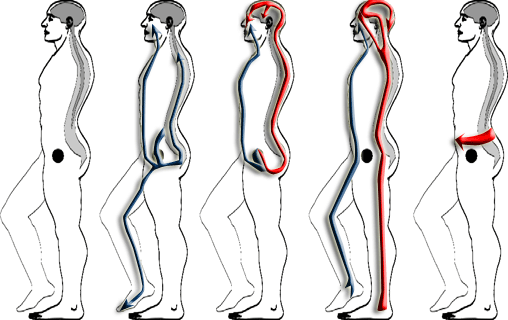
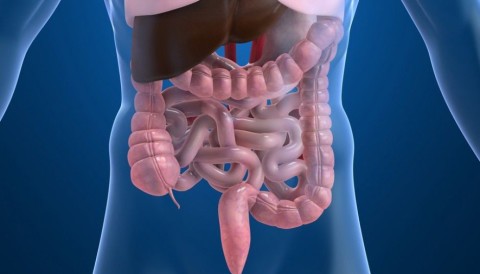

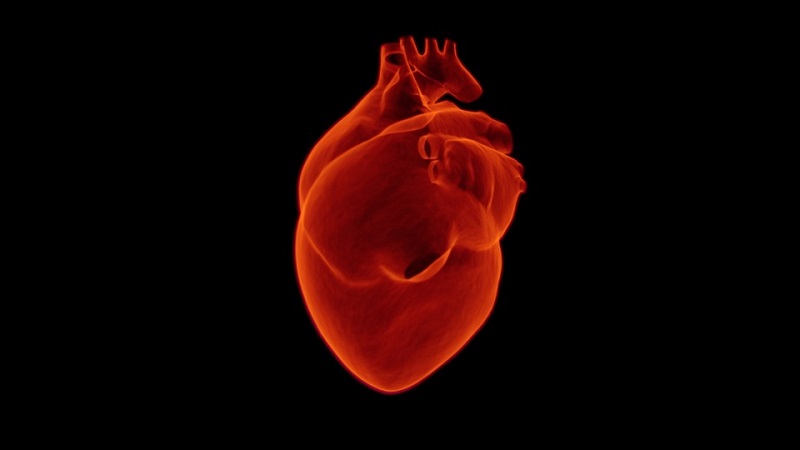
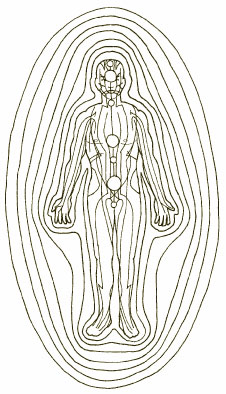
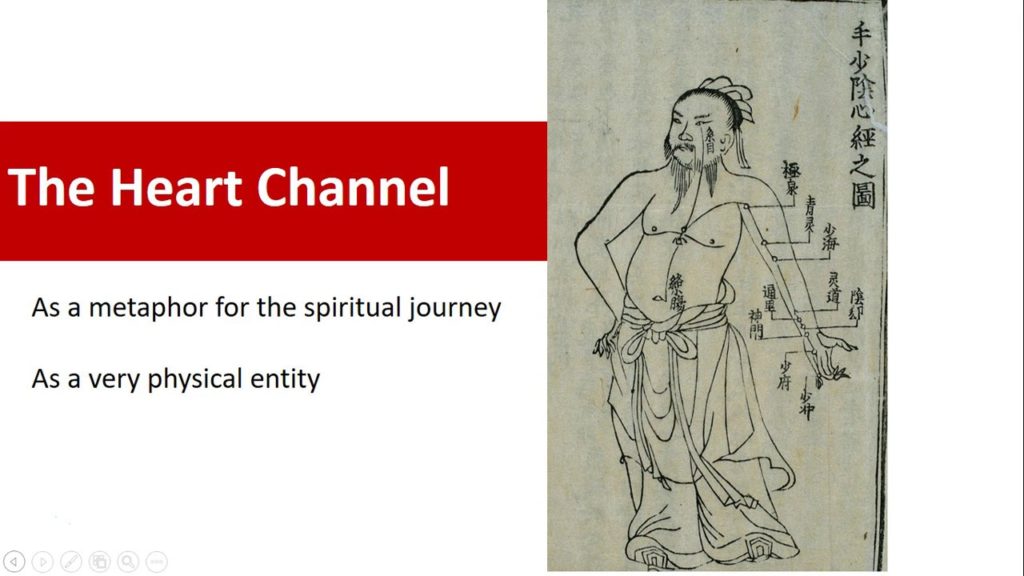
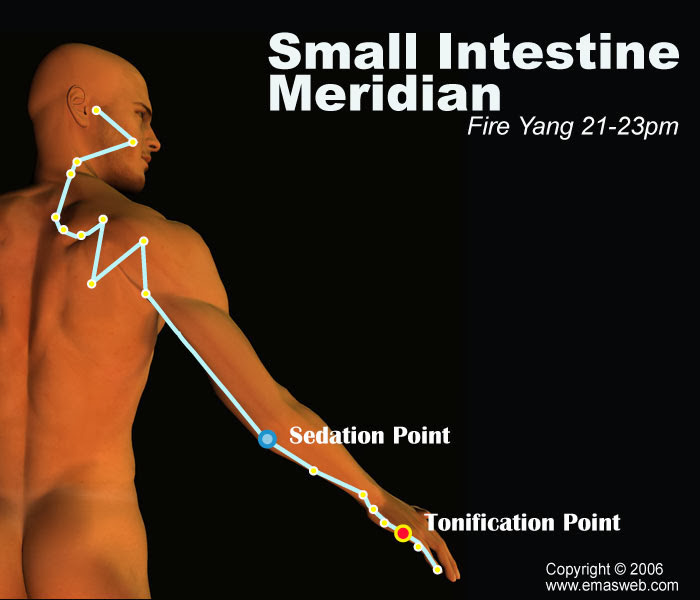
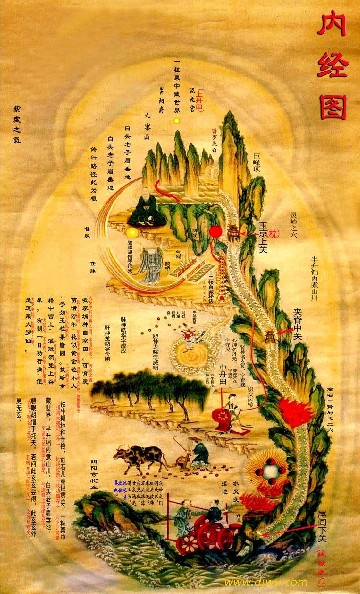

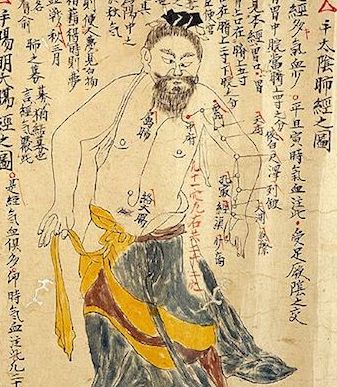

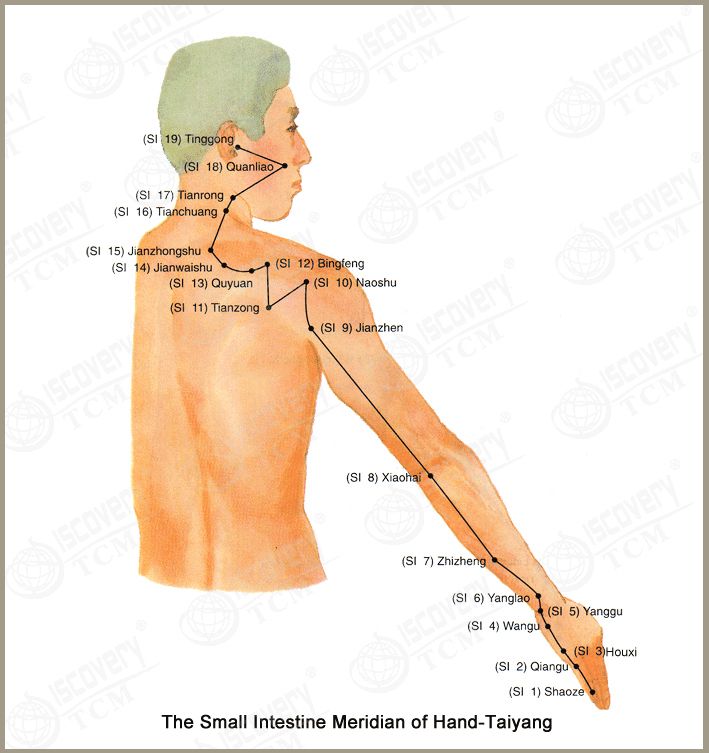



No Comments